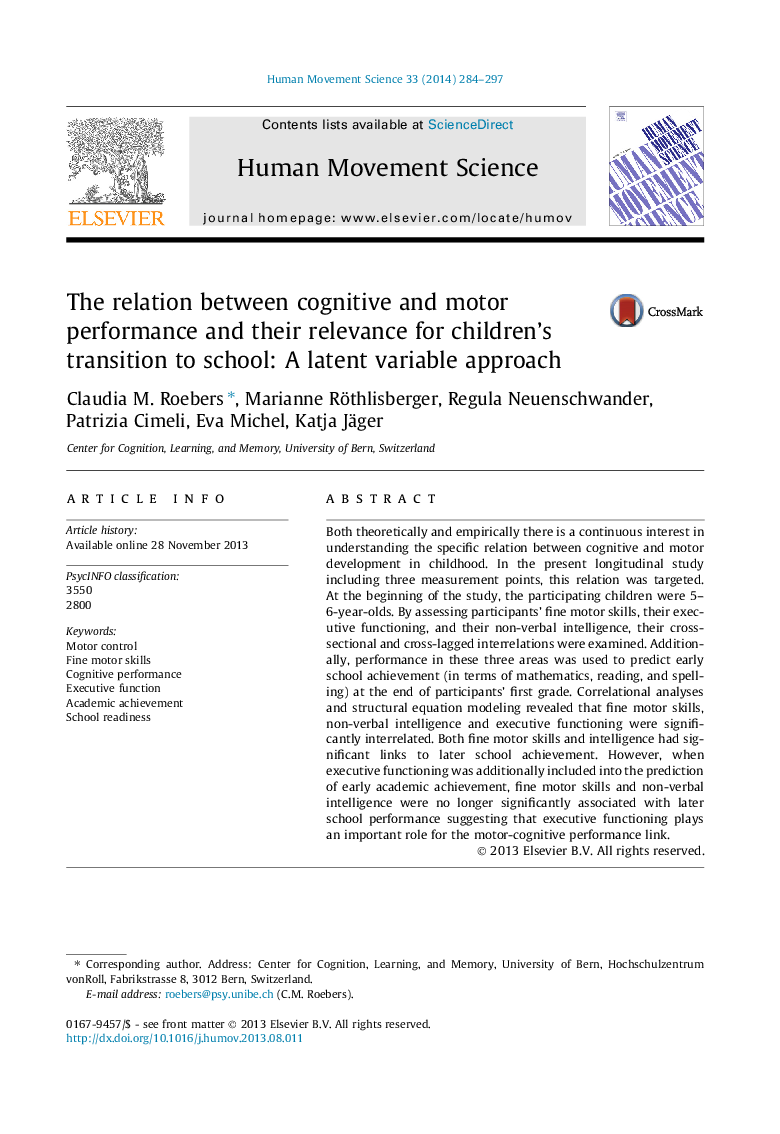| Article ID | Journal | Published Year | Pages | File Type |
|---|---|---|---|---|
| 7292581 | Human Movement Science | 2014 | 14 Pages |
Abstract
Both theoretically and empirically there is a continuous interest in understanding the specific relation between cognitive and motor development in childhood. In the present longitudinal study including three measurement points, this relation was targeted. At the beginning of the study, the participating children were 5-6-year-olds. By assessing participants' fine motor skills, their executive functioning, and their non-verbal intelligence, their cross-sectional and cross-lagged interrelations were examined. Additionally, performance in these three areas was used to predict early school achievement (in terms of mathematics, reading, and spelling) at the end of participants' first grade. Correlational analyses and structural equation modeling revealed that fine motor skills, non-verbal intelligence and executive functioning were significantly interrelated. Both fine motor skills and intelligence had significant links to later school achievement. However, when executive functioning was additionally included into the prediction of early academic achievement, fine motor skills and non-verbal intelligence were no longer significantly associated with later school performance suggesting that executive functioning plays an important role for the motor-cognitive performance link.
Keywords
Related Topics
Life Sciences
Neuroscience
Cognitive Neuroscience
Authors
Claudia M. Roebers, Marianne Röthlisberger, Regula Neuenschwander, Patrizia Cimeli, Eva Michel, Katja Jäger,
